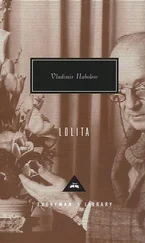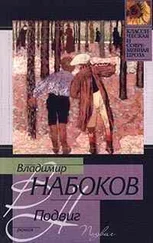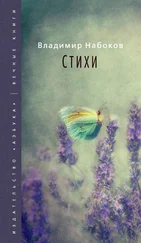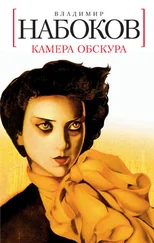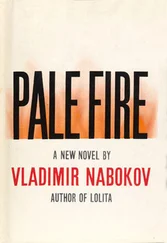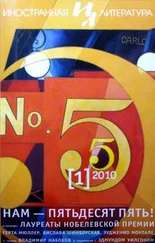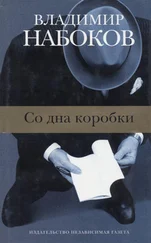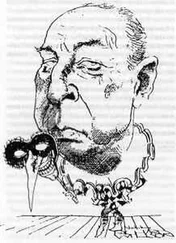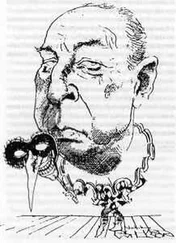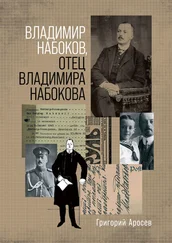Владимир Набоков - [Proofed to line 1994]
Здесь есть возможность читать онлайн «Владимир Набоков - [Proofed to line 1994]» — ознакомительный отрывок электронной книги совершенно бесплатно, а после прочтения отрывка купить полную версию. В некоторых случаях можно слушать аудио, скачать через торрент в формате fb2 и присутствует краткое содержание. Жанр: Классическая проза, на английском языке. Описание произведения, (предисловие) а так же отзывы посетителей доступны на портале библиотеки ЛибКат.
- Название:[Proofed to line 1994]
- Автор:
- Жанр:
- Год:неизвестен
- ISBN:нет данных
- Рейтинг книги:3 / 5. Голосов: 1
-
Избранное:Добавить в избранное
- Отзывы:
-
Ваша оценка:
- 60
- 1
- 2
- 3
- 4
- 5
[Proofed to line 1994]: краткое содержание, описание и аннотация
Предлагаем к чтению аннотацию, описание, краткое содержание или предисловие (зависит от того, что написал сам автор книги «[Proofed to line 1994]»). Если вы не нашли необходимую информацию о книге — напишите в комментариях, мы постараемся отыскать её.
[Proofed to line 1994] — читать онлайн ознакомительный отрывок
Ниже представлен текст книги, разбитый по страницам. Система сохранения места последней прочитанной страницы, позволяет с удобством читать онлайн бесплатно книгу «[Proofed to line 1994]», без необходимости каждый раз заново искать на чём Вы остановились. Поставьте закладку, и сможете в любой момент перейти на страницу, на которой закончили чтение.
Интервал:
Закладка:
As mentioned, I think, in my last note to the poem, the depth charge of Shade's death blasted such secrets and caused so many dead fish to float up, that I was forced to leave New Wye soon after my last interview with the jailed killer. The writing of the commentary had to be postponed until I could find a new incognito in quieter surroundings, but practical matters concerning the poem had to be settled at once. I took a plane to New York, had the manuscript photographed, came to terms with one of Shade's publishers, and was on the point of clinching the deal when, quite casually, in the midst of a vast sunset (we sat in a cell of walnut and glass fifty stories above the progression of scarabs), my interlocutor observed: "You'll be happy to know, Dr. Kinbote, that Professor So-and-so [one of the members of the Shade committee] has consented to act as our adviser in editing the stuff."
Now "happy" is something extremely subjective. One of our sillier Zemblan proverbs says: the lost glove is happy. Promptly I refastened the catch of my briefcase and betook myself to another publisher.
Imagine a soft, clumsy giant; imagine a historical personage whose knowledge of money is limited to the abstract billions of a national debt; imagine an exiled prince who is unaware of the Golconda in his cuff links! This is to say - oh, hyperbolically - that I am the most impractical fellow in the world. Between such a person and an old fox in the book publishing business, relations are at first touchingly carefree and chummy, with expansive banterings and all sorts of amiable tokens. I have no reason to suppose that anything will ever happen to prevent this initial relationship with good old Frank, my present publisher, from remaining a permanent fixture.
Frank has acknowledged the safe return of the galleys I had been sent here and has asked me to mention in my Preface - and this I willingly do - that I alone am responsible for any mistakes in my commentary. Insert before a professional. A professional proofreader has carefully rechecked the printed text of the poem against the phototype of the manuscript, and has found a few trivial misprints I had missed; that has been all in the way of outside assistance. Needless to say how much I had been looking forward to Sybil Shade's providing me with abundant biographical data; unfortunately she left New Wye even before I did, and is dwelling now with relatives in Quebec. We might have had, of course, a most fruitful correspondence, but the Shadeans were not to be shaken off. They headed for Canada in droves to pounce on the poor lady as soon as I had lost contact with her and her changeful moods. Instead of answering a month-old letter from my cave in Cedarn, listing some of my most desperate queries, such as the real name of "Jim Coates" etc., she suddenly shot me a wire, requesting me to accept Prof. H. (!) and Prof. C (!!) as coeditors of her husband's poem. How deeply this surprised and pained me! Naturally, it precluded collaboration with my friend's misguided widow.
And he was a very dear friend indeed! The calendar says I had known him only for a few months but there exist friendships which develop their own inner duration, their own eons of transparent time, independent of rotating, malicious music. Never shall I forget how elated I was upon learning, as mentioned in a note my reader shall find; that the suburban house (rented for my use from Judge Goldsworth who had gone on his Sabbatical to England) into which I moved on February 5, 1959, stood next to that of the celebrated American poet whose verses I had tried to put into Zemblan two decades earlier! Apart from this glamorous neighborhood, the Goldsworthian château, as I was soon to discover, had little to recommend it. The heating system was a farce, depending as it did on registers in the floor wherefrom the tepid exhalations of a throbbing and groaning basement furnace were transmitted to the rooms with the faintness of a moribund's last breath. By occluding the apertures upstairs I attempted to give more energy to the register in the living room but its climate proved to be incurably vitiated by there being nothing between it and the arctic regions save a sleezy front door without a vestige of vestibule - either because the house had been built in midsummer by a naïve settler who could not imagine the kind of winter New Wye had in store for him, or because old-time gentility required that a chance caller at the open door could satisfy himself from the threshold that nothing unseemly was going on in the parlor.
February and March in Zembla (the two last of the four "white-nosed months," as we call them) used to be pretty rough too, but even a peasant's room there presented a solid of uniform warmth - not a reticulation of deadly drafts. It is true that, as usually happens to newcomers, I was told I had chosen the worst winter in years - and this at the latitude of Palermo. On one of my first mornings there, as I was preparing to leave for college in the powerful red car I had just acquired, I noticed that Mr. and Mrs. Shade, neither of whom I had yet met socially (I was to learn later that they assumed I wished to be left alone), were having trouble with their old Packard in the slippery driveway where it emitted whines of agony but could not extricate one tortured rear wheel out of a concave inferno of ice. John Shade busied himself clumsily with a bucket from which, with the gestures of a sower, he distributed handfuls of brown sand over the blue glaze. He wore snowboots, his vicuña collar was up, his abundant gray hair looked berimed in the sun. I knew he had been ill a few months before, and thinking to offer my neighbors a ride to the campus in my powerful machine, I hurried out toward them. A lane curving around the slight eminence on which my rented castle stood separated it from my neighbors' driveway, and I was about to cross that lane when I lost my footing and sat down on the surprisingly hard snow. My fall acted as a chemical reagent on the Shades' sedan, which forthwith budged and almost ran over me as it swung into the lane with John at the wheel strenuously grimacing and Sybil fiercely talking to him. I am not sure either saw me.
A few days later, however, namely on Monday, February 16, I was introduced to the old poet at lunch time in the faculty club. "At last presented credentials," as noted, a little ironically, in my agenda. I was invited to join him and four or five other eminent professors at his usual table, under an enlarged photograph of Wordsmith College as it was, stunned and shabby, on a remarkably gloomy summer day in 1903. His laconic suggestion that I "try the pork" amused me. I am a strict vegetarian, and I like to cook my own meals. Consuming something that had been handled by a fellow creature was, I explained to the rubicund convives, as repulsive to me as eating any creature, and that would include - lowering my voice - the pulpous pony-tailed girl student who served us and licked her pencil. Moreover, I had already finished the fruit brought with me in my briefcase, so I would content myself, I said, with a bottle of good college ale. My free and simple demeanor set everybody at ease. The usual questionsmere fired at me about eggnogs and milkshakes being or not being acceptable to one of my persuasion. Shade said that with him it was the other way around: he must make a definite effort to partake of a vegetable. Beginning a salad, was to him like stepping into sea water on a chilly day, and he had always to brace himself in order to attack the fortress of an apple. I was not yet used to the rather fatiguing jesting and teasing that goes on among American intellectuals of the inbreeding academic type and so abstained from telling John Shade in front of all those grinning old males how much I admired his work lest a serious discussion of literature degenerate into mere facetiation. Instead I asked him about one of my newly acquired students who also attended his course, a moody, delicate, rather wonderful boy; but with a resolute shake of his hoary forelock the old poet answered that he had ceased long ago to memorize faces and names of students and that the only person in his poetry class whom he could visualize was an extramural lady on crutches. "Come, come," said Professor Hufey, "do you mean, John, you really don't have a mental or visceral picture of that stunning blonde in the black leotard who haunts Lit. 202?" Shade, all his wrinkles beaming, benignly tapped Hurley on the wrist to make him stop. Another tormentor inquired if it was true that I had installed two ping-pong tables in my basement. I asked, was it a crime? No, he said, but why two? "Is that a crime?" I countered, and they all laughed.
Читать дальшеИнтервал:
Закладка:
Похожие книги на «[Proofed to line 1994]»
Представляем Вашему вниманию похожие книги на «[Proofed to line 1994]» списком для выбора. Мы отобрали схожую по названию и смыслу литературу в надежде предоставить читателям больше вариантов отыскать новые, интересные, ещё непрочитанные произведения.
Обсуждение, отзывы о книге «[Proofed to line 1994]» и просто собственные мнения читателей. Оставьте ваши комментарии, напишите, что Вы думаете о произведении, его смысле или главных героях. Укажите что конкретно понравилось, а что нет, и почему Вы так считаете.

